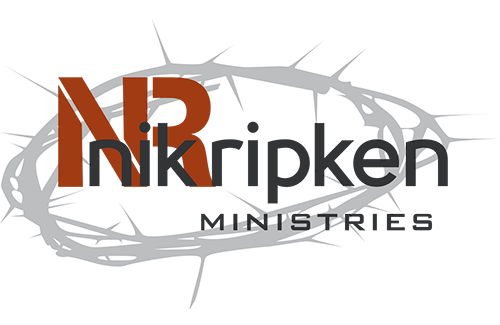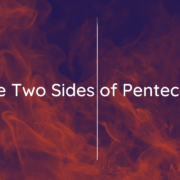The Two Sides of Pentecost
Have you ever met a missionary who was deeply chagrined when hearing of new converts? Colleagues, who shall remain nameless, and I, who thankfully have to write under a pen name, are guilty of this non-missionary-like behavior. While in a meeting we heard of 26 “converts” from war-torn Somalia who were coming to declare their faith. Our immediate response was, “Oh, no, what are we going to do?”
This response was rooted in reality. There was support for 26 new converts to be found? These converts equaled almost the number of evangelicals working among this scattered and shattered people group? There is no Somali Church or cohesive believing community. As Somali believers leave the “umma” of Islam, where are they to find shelter, food, employment, education for their children, and medical care? Few people groups, countries, or churches in the Horn of Africa have any residue of concern for Somalis. Donor fatigue is not a sole concern of Western aid countries.
For five years it has been apparent that westerners cannot provide the support system for a people group movement among the Somalis. Westerners are too exposed in this Muslim-dominated society. Eventually, the church must be inwardly self-supporting; whatever that church looks like. Tragically, believers who worked, some for decades, for church-based relief agencies have become prime targets for Muslim fundamentalists and, further, have seen their livelihood evaporate with the withdrawal of those same aid agencies.
Yet who would leave believers to stand alone in times of persecution? Who can stand by and witness the slow starvation of believers? However are believers to be continuously extracted, generation after generation, decimating the possibility of a people group movement leading to established cell groups, Bible Studies, and churches? What agency can provide housing, education or medical care for large numbers of extracted believers (or in-country believers for that matter)? Who among all of us would not become a “believer” for a time in order to escape Somalia, receiving expatriate support guaranteeing the lives of one’s children? What is to be done? How is the church to be born? How do expatriate missionaries relate to believers before and after they are gathered into churches?
The defining issue is which side of Pentecost is the people group living?
Acts records many instances of persecution among early believing communities. However, the record is clear. Believing communities existed! When believers began to be kicked out of synagogues and the Temple, with widows and orphans disenfranchised, they had a believing community of at least 3000 to fall back on. 3000! It is important to note that Pentecost preceded, in this record of the early church, widespread persecution. When believers lost homes, education, jobs, marriage opportunities or burial privileges they lost them within a community that “took up the slack,” providing for basic human needs. This support was vital to the continued existence of the church within the matrix of persecution.
Pentecost is more than a one-time historical event. Pentecost can always be the catalyst by which the Holy Spirit takes believers who are scattered, alone and afraid, and then multiplies and gathers them into a dynamic, multiplying community of faith. The status of faith in PrePentecost (Genesis through Acts 1) is radically different one day later in Acts 2. Throughout the book of Acts, Pentecost is often repeated within multiple people groups, cities or population segments when thousands of souls entered into the kingdom of God together and in a short period of time. Faith exploded! What happened in Acts 2 for the Jews was repeated in Acts 8 for the Samaritans and among the Gentiles in Acts 10. Pentecost is a people group movement led by the Holy Spirit. It is a movement that God desires for Europe where only 2-4% of the population claim any relationship with Jesus or His church. God desires Pentecost for the USA where approximately 6% of all people believe that Jesus is the only way to God, that the Bible is truth and the miracles were actual events. America needs Pentecost.
Persecution must be preceded by Pentecost if a viable indigenous church is to emerge and survive in hostile environments.
What made the sin of Ananias and Saphira so heinous to the Holy Spirit? Their lying and withholding support struck at the root of the church’s ability to exist within a persecutory environment. Their sin, if allowed to become normative, could have led to the demise of the early church in that location, during that generation. As one projects ministry into the unengaged and unreached world, especially among the “dangerously unresponsive”, it is important to determine on which side of Pentecost one’s people group exists within the sands of time of Christian witness.
During the Cold War there was a wall in Berlin. Depending upon which side of that wall one lived dramatically affected one’s worldview. Thankfully that wall has come down. But perspectives on opposite sides of that wall/event were indicative of people living world’s apart.
For the sake of further dialogue allow the following to be raised:
• In regard to persecution after Pentecost, martyrdom may be the “life blood of the church.” Persecution without Pentecost may result in the death of a people group movement towards church. Persecution can virtually kill a church in embryonic, Pre-Pentecost stage. Persecution will strengthen existing churches in community.
• The role of an expatriate missionary in supporting isolated believers, Pre-Pentecost, is far different from the role of a missionary within a believing PostPentecost community. In Pre-Pentecost believers are scattered, alone and afraid. Approximately 84% of the lost souls living in Pre-Pentecost environments are literate. In Pre-Pentecost100% of all converts are first generation believers. In Post-Pentecost faith has become literate, housed in buildings, are in denominations with up to 93% of all those baptised were born and bred inside the existing church. In PostPentecost converts are housed in existing religious structures. In Pre-Pentecost if one prays for 1000 believers in Somalia, Afghanistan or Saudi Arabia, you must also pray also for 1000 Christian spouses, 100 believing families and 1000 job skills.
• Methodologies needed to begin a church planting movement among a Pre-Pentecost people group is vastly different from that needed to sustain such a movement or maintain a denomination in PostPentecost. Evangelists tend to be more risk takers then pastors in Acts. The role and gift set of a missionary is different from those of a pastor.
• What starts the church before Pentecost is more fragile than what sustains the church after Pentecost. The question asked in Pre-Pentecost is, “How do we get from zero to 1?” What type of faith and tools are needed to get to the first believer, the first church planted? The question for Pentecost is, “How do we throw gasoline in what God has begun?” We watch as the Holy Spirit grows and Body of Christ from a handful to a mighty movement. We stand amazed at how hundreds of believers are transformed into thousands who follow Jesus. It can be suggested that it is at Pentecost that the missionary exits and returns once again to the missionary task of remaining among the lost as sheep among the wolves, taking our risks where the wolves are in the majority. Dare we say that missionaries were made by God for Pre-Pentecost and that they exit Pentecost as soon as possible.
• This article is written by a Baptist from the “buckle of the Bible Belt.” But since our ministry takes place in countries where the men do not wear pants, mostly they wear wrap around skirts, it may be safe to say that “signs, miracles, and wonders” are vital in beginning the church in hostile environments. They are pertinent to survival within the midst of persecution. Biblically they are the norm noting that everything that God has done in the Bible He is still doing.
• Pentecost allows the church to exist among its own people; not on the fringe. It establishes community, an oasis in the midst of a harsh desert.
• Pentecost allows the church to travel. There is always a tension between widening witness and protecting the harvest. The established Post-Pentecost church is often concerned with legalities, rights, and apologetics. The emerging Pre-Pentecost church is concerned with survival. Pentecost is the pivotal event between the two. It is heartbreaking when well-meaning missionaries take new believers from Pre-Pentecost straight to all the modalities of a PostPentecost church without ever being allowed to experience the unbelievable power and growth of the kingdom of God that exists in Pentecost!
• Pentecost is vital to the survival of the church. Without Pentecost the church cannot care for itself. Before Pentecost, believers must often be sustained outside their own cultural surroundings artificially. Pentecost is such a harvest that God brings into the church all the resources necessary for the church’s explosion. Sadly, Post-Pentecost sees little actual growth and seeks to simply maintain its base of believers.
• When Pentecost arrives, missionaries should prepare their exit strategy. • Before Pentecost: believers and the Gospel must go village to village, town to town. The gospel is extremely mobile and security conscious with a flexible “tell no one” biblically-based wisdom as modeled by Jesus. Great care is taken that Jesus not be seen and accepted simply as a healer, teacher, or worker of miracles. He is King of kings and Lord of lords. Persons targeted with the gospel include key persons (Nicodemus) who are highly regarded and self-supporting. Someone must care for the scattered flock of Christ. Sometimes a high profile Pauline evangelists/ missionary is forced out of a location, as they have become the focus of persecution or resistance. This protects the emerging church and allows a more low keyed approach. Neither the “down and out” nor the “up and out” are neglected.
• After Pentecost, believers and the gospel must continue village to village, town to town. The existing church must have a feeder system. Evangelists and missionaries must move on to the next people group. Too quickly locally the emphasis locally often becomes pastoral care over evangelism. The church internally cares for its members and for those marginalized by society. The church in worship becomes a sending agency rather than a going Body. A hierarchy naturally develops. Tradition, preachers, and a certain view of scriptural doctrine take precedence over signs and wonders. The church in Pentecost grows through trials and persecution. The church in Post-Pentecost in error believes that the right doctrine takes precedence over evangelism.
Pentecost happened! The Holy Spirit could take us to specific locations within the book of Acts. The Bible narrates a specific time and groups of people that God called from Pre-Pentecost to Pentecost. What a glorious time that must have been. Being on this side of the wall, having been raised in Post-Pentecost cultural enclaves perhaps flavors all that we believe and plan. Climb the wall and see life, persecution, and the emerging church on the other side. May God bring Pentecost again to our peoples and our nations. As the Post-Pentecost church engages lostness in Pre-Pentecost perhaps once again God will visit us with a church planting movement, Pentecost, once again.

